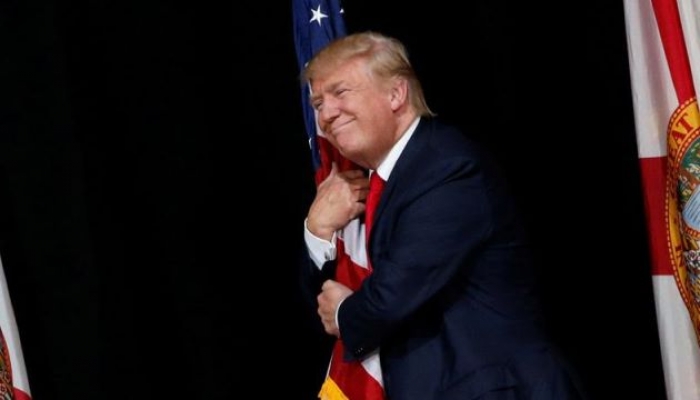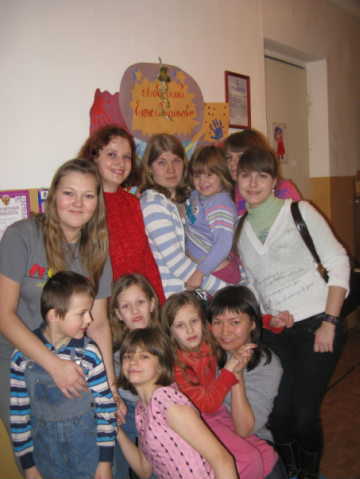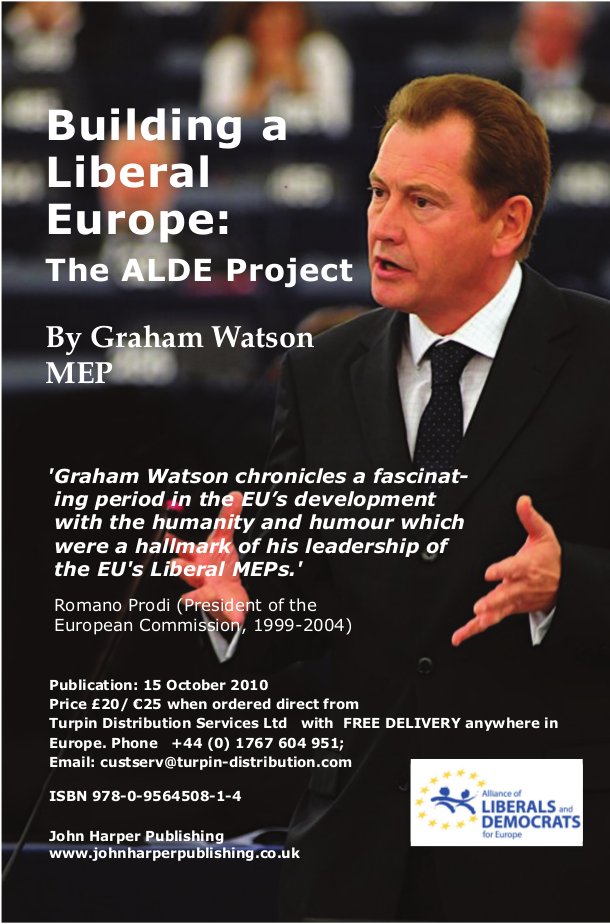Grigory Yavlinsky: What will happen now? Donald Trump will happen
Grigory Yavlinsky’s website, 9.11.2016
So, Donald Trump was elected President of the USA. What will happen now? Nobody knows. Even Trump himself does not know.
As for Russia, it was clear long before the election day that a bare victory of any candidate would not fundamentally change the US-Russia relations. The policy of the Russian government led Russia to a deadlock and brought it to isolation. And as long as these policies do not change, the tension in Russia’s relations with the United States will be maintained. The reasoning by our domestic TV propaganda faces about Trump’s victory has nothing to do with concern about Russia’s interests, they are merely rejoicing at the misfortune of others: “my neighbor’s cow has died, it is a trifle, but a very pleasant trifle”. 
However, I am amazed that Russia’s political scientists, news analysts and politicians are so naive: they really believe that Trump is so eccentric that he truly likes Putin and Russia’s governing class. But it is absolutely obvious that if Hillary Clinton was saying “this is white”, Trump had to respond “no, this is black”. Only these tactical considerations can explain his “sympathies” for Russia. I think that, when he is in the White House, his policy concerning Russia will be much more dull, tough and sharp in comparison with the policy which could have been carried out by Hillary Clinton’s Administration.
Donald Trump will not rule only by himself. A President is an extremely important figure in the United States. But he is only a part of the political system. The subjective features of this part are counterbalanced by the Supreme Court and the Congress, and all the intelligence services are accountable to the later and it can carry out most serious investigations including investigations into the activities of top public officials. This is not to mention that democratic mechanisms do function on every level there – the federal, the state, and the local self-government level. The political system of the USA with all its disadvantages is much stronger than any candidate. Most likely that it will not give Trump a chance to let himself go. Therefore, answering the question “what will happen?” we can presume that nothing will happen.
So, there will be no an immediate catastrophe. But it is by no means a reason to calm down for the next four years, even for a day. There are too many problems to be solved and they require enormous efforts on behalf of the society and the elite, and it is not clear from the election result who is going to make these efforts in the US and how.
Moreover, there are things more important than any personal result.
The elections, since all the nation participates there, one way or another (voting or not), can tell a lot about the political system of the country and the social-psychological condition of the people. Quite recently, in September, we had a chance to see what the [parliamentary] elections in Russia have shown in this respect. So, what is peculiar about the American elections?
This presidential campaign fully demonstrated the manifestations of crisis within the American political system, in its elites. The election turned out to be quite unpleasant and even depressing. The election showed significant alienation of the elites form the people, the elites’ inability not only to answer the questions people ask but even to understand them and clearly word them.
The key political arguments were not so much of a positive programmes [of the candidates], but “Stop it”, on the one hand, and “God forbid!”, on the other.
There are no persons, no figures, no evidently strong political leaders. The system does not produce them. Both the supporters of Clinton and the supporters of Trump, are not delighted, to put it mildly, with their candidates’ personalities. As the saying goes, half a loaf is better than no bread…
The Americans should be concerned, in the first place, about the fact that this election clearly demonstrated a long brewing split of the nation. Active supporters of both the candidates truly loathe each other and consider their opponents a threat to America’s traditional values, the way of life and the future of the country.
Over half of population of the country, for different reasons and motives, proved to be ready to support most extreme populism. We could see the way voters supported outright nonsense Trump was saying (that he would return the coal mines closed a long time ago to miners and steel mills to steelmakers, etc.). To say nothing of his threats to jail his opponent in case he were elected (eight years ago such statements would have put an end to a candidate’s career) or endless false statements during the debates… All this is not just a game, it is a functioning model of interaction with modern mass political thinking. Due to mosaic thinking created by modern television and especially digital technologies, there is a lack of even intuitive understanding of the contents. Such brain condition of the majority of people, is for real and, if nothing is changed, for a long time.
It is not a matter of the crisis of the political system in the sense of political parties, election procedure, state institutions (though, many different issues arouse concern here, for instance, the present condition of the Republican Party and whether it can remain a full-fledged part of the two-party system), but it is matter of a core subject, i.e., the mechanism of communication and interaction between the people and the elites about the future of the country and the ways to achieve it. The promises of both the candidates to return greatness to America sounded as if they did not realise what it meant by the 21 century standards.
Thus, the US election brought to light so many new crisis phenomena of a grand scale, that the events taking place eight years ago seem distant past. At that time, the fact that an Afro-American came to power in the White House turned out to be a universally recognised epoch-making event. Woman-President could have become a leitmotif of 2016 election. Hillary Clinton laid the emphasis of her campaign on that at first. However, as election campaign developed, this topic was sidelined by very dangerous and negative tenancies.
“…The world is rapidly and irreversibly becoming inter-connected through globalisation – either the global use of resources, globalisation of economic activity or last and not least the globalisation of politics, expressed in the growing role of international relations.
What does this mean in practice? First and foremost that the consequences and cost of every decision adopted by the governments of developed countries grow exponentially. The consequences of abortive decisions and the cost of errors that have been perpetrated and the responsibility assumed by the governments and their leaders when deciding on a specific option, grow accordingly. Owing to the interdependence of economics and politics in the world today, the decisions and actions of individual governments and politicians may exert a far greater influence on international development than was the case one hundred, fifty, and even just twenty years ago.
This means that the responsibility for the reasonable and considered nature of adopted measures has increased exponentially for all participants in international politics. The intellectual and moral demands on individuals playing key roles by virtue of their corresponding political significance are becoming exceptionally high. It is here, however that I must admit regrettably that the current political generation has proved totally incapable of meeting those demands…
If politics, including international issues, demonstrates a systematic retreat from moral principles and values, at a time of globalisation in the post-industrial society of the 21st century the global economy will always move asymptomatically towards crises. Periodically, crises will occur and may well prove even more destructive.”
“I am far more concerned by the creeping expansion of political and economic post-modernism that I have tried to the best of my understanding to describe in this book – the retreat of public consciousness from the search for meaning in politics and economics, its immersion in consumption of newer and newer artificial forms offered in abundance by the virtual “new economy” and virtual politics. Naturally, this is a separate issue, but it is still true that today’s Europe and the United States were created historically owing to a fierce struggle by their populations for its interests and ideals against external pressures. This struggle, which was supported by reason and consideration of reality on the one hand and long-established understanding of the concepts of honour, dignity and morality on the other hand, created European civilisation in its most positive manifestation. Erasing those concepts from public consciousness; the public’s immersion in a virtual world of indoctrinated requirements, brands and symbols; and a reluctance to ask where money comes from and how some people acquired so much – all these factors could end up destroying this civilisation, if only because the leaders of society are not Martians or people from a higher caste. They are essentially the same “men on the street” with the same ideas, psychology, and prejudices as the public. The degradation of mass consciousness, will, after a certain time lag, inevitably result in the degradation of politics and business, to decay and an inability to progress.”
(Grigory Yavlinsky. Realeconomik: The Hidden Cause of the Great Recession (And Hoe to Avert the Next One), 2011, Yale University Press)
Everything that has been happening around the US presidential election highlights the conclusions made over five years ago. Years go by, but the required changes do not come. And changes are really needed. The interconnected global world needs a responsible elite. If it is not formed by means of changing the habitual political system for the sake of this purpose, a growing public protest will only work for destruction.
The gap in relations between the elites and masses of voters, the crisis of the system are also proclaimed in the growing importance of the so-called “silent majority”, i.e. citizens who do not express their views and sympathies during the campaign, but determine the result. It is this majority which turns out to be the most favorable audience for a populist game based on fear, hatred, and other “low feelings”. This happened in the UK during Brexit, and it is happening in the US now. It follows that the political system simply does not have a language to talk with people. The electorate responds to a subtext and atmosphere, rather than a text. The choice is determined by the slogans that even Donald Trump does not consider possible to speak about directly. It is like an abscess, which is already large enough to determine the results of elections. But if the abscess continues to grow and will clearly break, pulling down the existing system of social and political communication.
It is in the interest of Russia, as well as in the interests of other countries, so that the new US administration, as government of the only global superpower, is able to strategically comprehend and assess the prospects for the modern world. Unfortunately, this is not so. And the results of the election do not vest much hope either.
No matter what happens in the US, the key thing for Russia today is to clearly understand its long-term prospects and steadily move towards them. Our key strategic goal is to become a full-fledged, integral part of the developed world, a modern European country. We must achieve this goal, regardless of who will be occupying the Oval Office of the White House for the next four years.
Source: http://www.yavlinsky.ru/news/mir/trump
Posted: November 16th, 2016 under Russia-US Relations.









